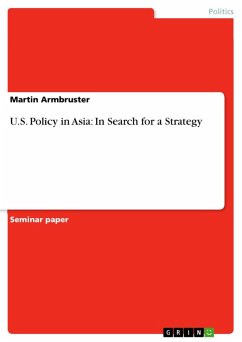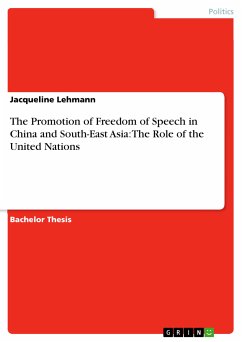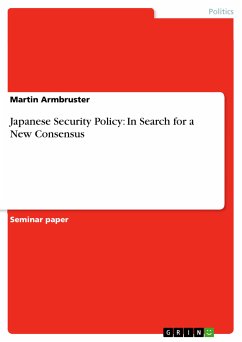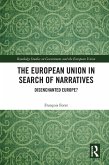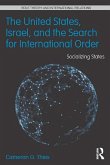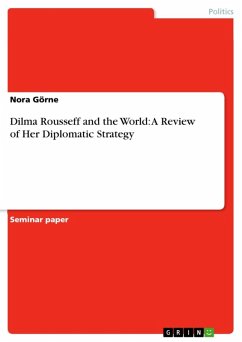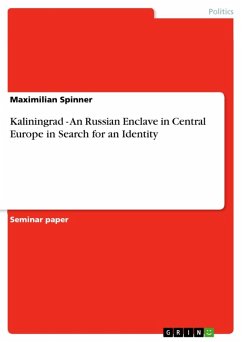Seminar paper from the year 2009 in the subject Politics - Region: Far East, grade: 1,3, Johannes Gutenberg University Mainz, language: English, abstract: With the inauguration of the 44th U.S. President ahead in January 2009, it is not surprising that 2008 has been a year full of proposals, how the U.S.-Asia policy of the next administration should look like. Since the end of the Cold War, the United States has lost its role as the decisive strategic actor in the Asian region. It is now sharing the stage with China which has grown dramatically over the past 20 years. There has also been a considerable process of regionalization in Asia, documented best in the success of the Association of Southeast Asian Nations (ASEAN) and the ongoing ASEAN plus three process that includes China, Japan and South Korea. Being aware that the balance of power is shifting not in favour of the United States, there are several concepts, how the next U.S. administration should handle the situation in Asia. A realist concept - in which the rise of China is considered to be a great danger to vital U.S. interests in the region - suggests a policy of balancing against China. That means shaping the balance of power in favour of American interests. In contrast, an institutional concept pledges for a more cooperative, forward-looking policy towards China and Asia as a whole, saying that such cooperation would serve Asian (including Chinese) as well as American interests. In the following section I will show the concept of a forward-looking U.S.-Asia policy represented by Wu Xinbo (2008, 155-163). I will also put it in the context of IR theory and will compare it with other approaches.
Dieser Download kann aus rechtlichen Gründen nur mit Rechnungsadresse in A, B, BG, CY, CZ, D, DK, EW, E, FIN, F, GR, HR, H, IRL, I, LT, L, LR, M, NL, PL, P, R, S, SLO, SK ausgeliefert werden.

